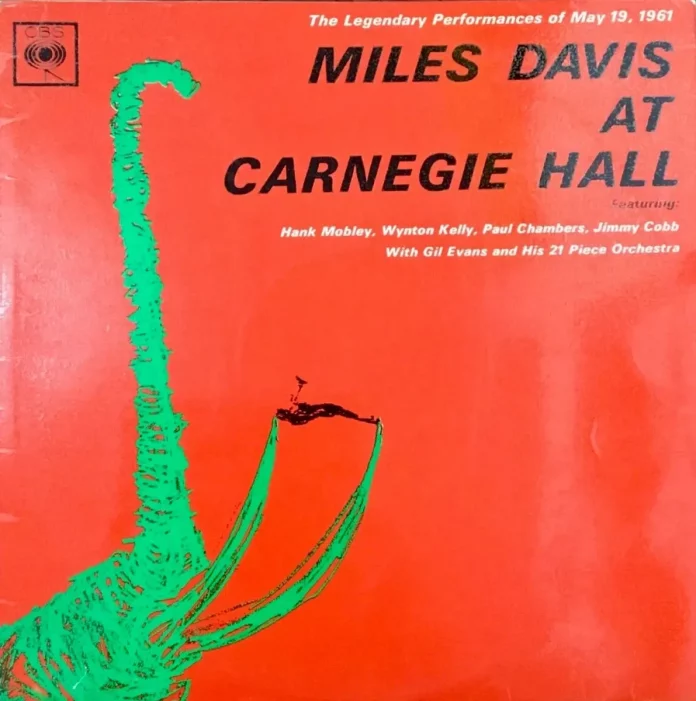I admit that I was at once put off by the subtitle “The legendary performance of May 19th 1961” – this is the sort of sales line that reviewers must regard with scepticism. However, it did not prevent me listening with deepening interest to the music which Miles made with his quintet in front of Gil Evans’ 21-piece orchestra.
What exactly did I hear? First and foremost a small group which swung consistently and intelligently behind Miles. Then there was the big band, led as in previous sessions by Evans, a clever and very progressive orchestrator. There are moments when it drops into stodgy sounding chorded passages, which are very much a part of the pseudo-concert presentation in jazz today.
The important point to remember is that the two groups played as a whole, and that their resulting efforts were musically productive and provocative. For a man of Miles’ temperament to maintain such stability and artistic brilliance in the face of a Carnegie Hall audience is quite an achievement, and I regard it as a major step forward in his career. Hank Mobley sounds busy and rather off form on this occasion, but Kelly and the rhythm are right with the beat throughout.
The two blues pieces are the outstanding tracks. “The Meaning Of The Blues” creates a pensive mood unusual in jazz, both sombre and elated at the same time, as if Miles had to prove that he was with his audience yet away out in front at the same time. Probably he is, but the need to communicate is still with him, and here he does it to near perfection.
Discography
So What; Spring Is Here; No Blues; Oleo (26½) min)—Someday My Prince Will Come; The Meaning Of The Blues; Lament; New Rhumba (18½ min)
Miles Davis (tpt): Hank Mobley (ten); Wynton Kelly (p); Paul Chambers (bs); Jimmy Cobb (d); plus Gil Evans and 21-piece band. Carnegie Hall, New York, 19/5/61.
(CBS BPG 62081 12inLP 36s. 9d.)
















